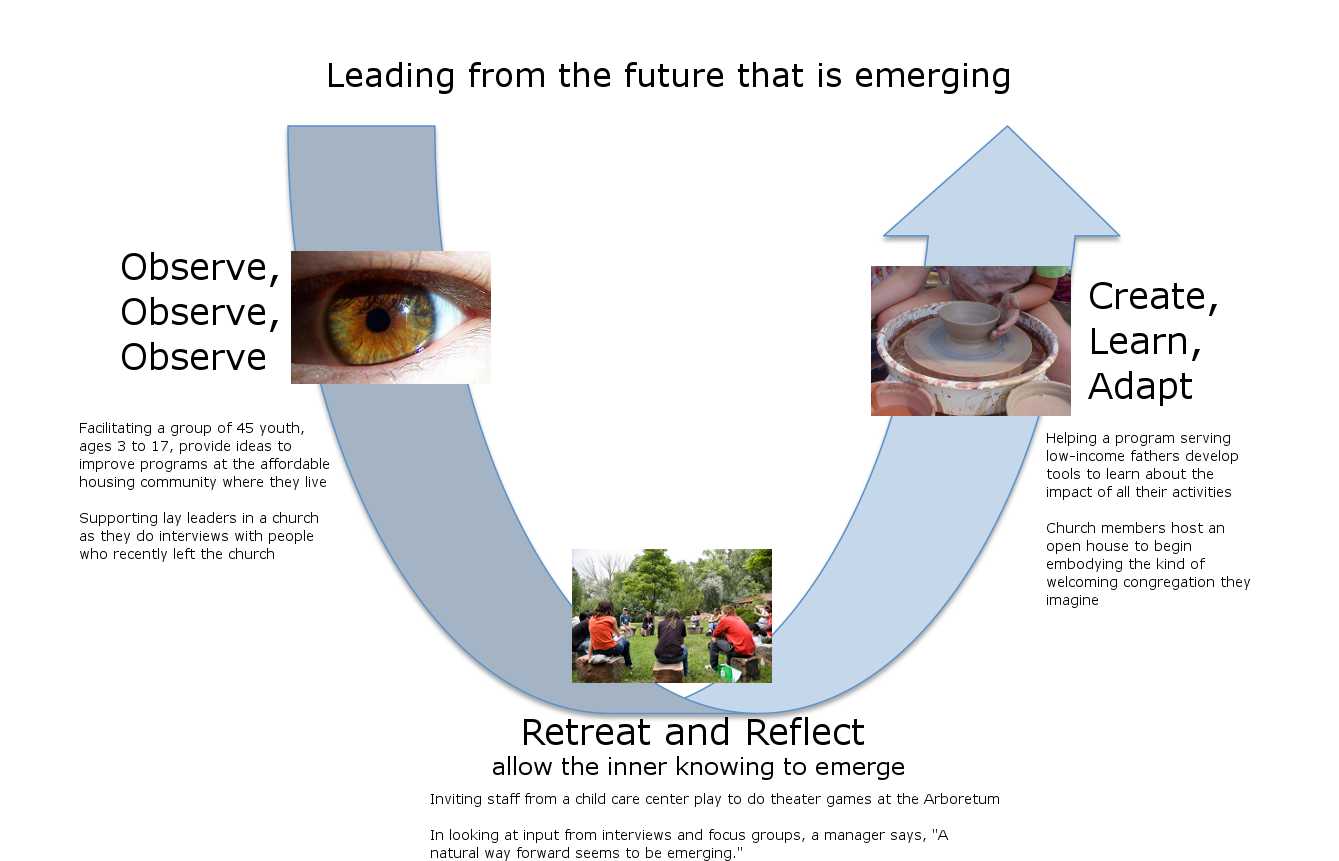 Who are the people on the margins of your organization, or your community? The people who used to participate, but left? Clients who don't have input into decisions about the organization? Maybe those who are mentally ill, homeless, or refugees? Those with different political or religious beliefs than the mainstream of your group?
Who are the people on the margins of your organization, or your community? The people who used to participate, but left? Clients who don't have input into decisions about the organization? Maybe those who are mentally ill, homeless, or refugees? Those with different political or religious beliefs than the mainstream of your group?How do you move toward people on the margins and learn from them? In my work with organizations, I find that the wisdom and energy needed for groups to shift in positive directions often can't happen until the group learns from and incorporate the leadership of those on the margins.
"You seem like a white, middle-class suburban guy with no problems. What do you struggle with?"
My friend Walter asked me this question. He had recently come out of a long period of homelessness and addiction, and he was always very open with me about his past and current struggles. Walter also testifies to everyone around him about how God turned his life around. I wanted to be as honest with Walter as he was with me. My relationship with Walter challenges me to stop pretending that I have it all together. Walter challenges me to allow myself to be changed in relationships, to be changed by God. In response to his question, I talked about the depression and suicides that have been around me throughout my life, and my struggle to move from withdrawn, numb places to being alive and engaged. We talked about lust and other forms of addiction that can take me away from God and myself. I also talked about the many privileges and comforts I've had throughout my life. As we've gotten to know each other better, I've started to challenge Walter more, about ways his spirituality might deepen with more listening and seeking out the spiritual truth that others have.
This fall Walter and I are going to do a series of presentations about "Spiritual Friendship Across Differences." One of those presentations will be at Twin Cities Friends Meeting (1725 Grand Ave., St. Paul) on December 12 at 9:45 am. We invite you to join us.
Connecting the mainstream and margins

This fall I'm serving as the interim executive director at City House, a nonprofit who has a mission of "connecting the mainstream and margins for mutual spiritual growth and transformation." I have volunteered with City House for several years, and I met my friend Walter through this volunteering. At City House we are asking how this practice of spiritual friendship across difference might be more fully unleashed in our communities. If you are drawn to this question, I invite you to an evening of discernment about the future of City House on Nov. 18. You don't need to need to have experience with the organization, just an interest in the questions we are asking.
In your life, organization, and community
We each have ways that we are in the mainstream of groups, and ways we are on the margins of groups. Within your organizations and communities, how are those mainstream/margins lines crossed for mutual learning and sharing of power?
I offer facilitation in organizations to increase clarity, consensus, and commitment, to help build more just and sustainable communities. I'm especially interested in helping design and facilitate inclusive, proactive processes that engage people who haven't traditionally been a part of organizational decision making. Please let me know if there are ways I can support organizations that you are connected with. I'm also grateful for your ideas, challenges, and suggestions.








